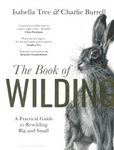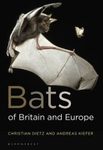![Spirals in Time Spirals in Time]()
Click to have a closer look
About this book
Contents
Customer reviews
Biography
Related titles
About this book
Stories of seashells stretch from the deep past into the present day. They are touchstones leading into fascinating realms of the natural world and cutting-edge science. Shell-makers (members of the phylum Mollusca) are among the most ancient and successful animals on the planet. They live extraordinary lives in many strange places; they create vital food and homes for other animals, and across the ages, people have used shells not only as trinkets but also as powerful symbols of sex and death, prestige and war.
Spirals in Time tells the story of the seashell. Two major themes weave through the narrative: the science and natural history of shells and their (original) owners, and the cultural importance and ways they have been used by humans over the millennia. The author, Helen Scales, shows how these simple objects have been sculpted by fundamental rules of mathematics and evolution, how they gave us colour, gems, food and money, and how they are prompting new medicines and teaching scientists how our brains work. Seashells are also symbols of the impacts humans have on the environment.
After surviving multiple mass extinctions millions of years ago, seashells have gone on to face an onslaught of anthopogenic challenges including the most recent crisis – climate change and corrosive oceans. But rather than dwelling on all that is lost, Spirals in Time emphasises that seashells offer an accessible way to reconnect people with nature, helping to heal the rift between ourselves and the living world. Aside from a fascinating slice of marine biology and cultural history, Spirals in Time shows why nature matters, and reveals the amazing story of these undersea wonders of calcium carbonate.
Please note: the difference between the £12.99 and £9.99 paperback version is that the former is a trade paperback, whereas the latter is a mass-market paperback (also see this entry on Wikipedia for the difference between the two).
Contents
1. Why so many shells? - the science of shell diversity
2. Sex, death the gems - the uses of shells in ancient cultures
3. How to make a shell - the maths of shell architecture
4. Shell food - eating and over-eating shellfish
5. A place to live - the ecology of shells
6. Colour and cloth - two shells used to make prestigious cloths since classical times
7. Long gone shells - the science of ancient molluscs
8. Shell collections - how one man created the world's biggest shell collection
9. Think like a snail - shells that inspire scientists in medicine, neurobiology, and other sciences
10. Fading away - shells and climate change
Customer Reviews
Biography
Helen Scales is a marine biologist based in Cambridge. Her doctorate involved exploring the reproductive biology of the humphead wrasse, and since then she has tagged sharks in California, catalogued marine life surrounding a hundred islands in the Andaman Sea, and most recently studied the diverse fish that live on coral reefs in the South Pacific. Helen is now a freelance researcher and broadcaster. A major outlet for Helen's explorations is BBC Radio where she is a reporter and presenter on science and natural history programmes, especially on Radio 4 and the World Service. Her credits include regular appearances on Inside Science and Home Planet, numerous one-off documentaries, and a coveted spot on The Museum of Curiosity. Helen is also a long-standing member of the award-winning science communication collective, The Naked Scientists, based at the University of Cambridge. Helen's first book was Poseidon's Steed; The Story of Seahorses from Myth to Reality, (2010, Penguin).





































